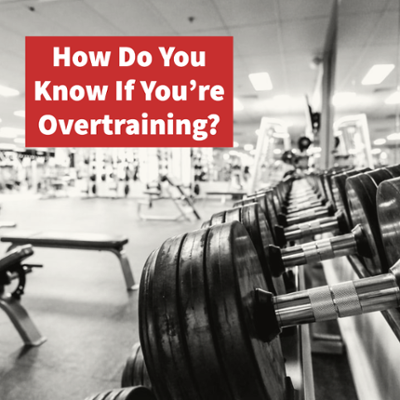Are You Overtraining?
July 13, 2020

By Marianne Durkin, SIUE Exercise Physiology Graduate Student Intern
When it comes to exercising and getting enough daily physical activity, it's common to think more would be better, and in most cases, it can be! There is a "dose-response relationship" to how much exercise will yield the greatest benefits, but that also means there is a point at which the benefits of increased amounts of exercise can become more harmful for the body.
Overreaching or more severely, overtraining syndrome, occurs with too much exercise and not enough recovery or with chronic under fueling (1). It has also been referred to as burnout, staleness, under-recovery, or chronic fatigue (2). Both men and women are at equal risk of overtraining, especially among those training for exercise performance events or athletes.
Here are some common signs and symptoms of overtraining (3):
- Persistent heavy, stiff and sore muscles
- Persistent fatigue, washed-out feeling
- Decreased performance and ability to maintain the training regimen
- Increase susceptibility to infections, cold, or headaches
- Nagging and somewhat chronic injuries
- Sleep disturbances
- Decreased mental concentration and restlessness
- Increased irritability
- Tachycardia or even bradycardia
- Depression
- Loss of appetite and weight loss
- Bowel movement changes
- Absence of menstruation
It's important to listen to your body and make sure you're getting enough rest after exercise. During recovery periods, individuals should consume adequate amounts of fluids and calories as well as get plenty of sleep. Recovery time is critical for muscle repair and growth (3). After a hard workout, you shouldn't feel wiped out, you should feel like you could do more; if not, you are doing too much (3).
If you find that you are experiencing some of the symptoms above, make an appointment with your physician.
References:
(1) Robinson, J. (2017, June 21). Overtraining: 9 signs of overtraining to look out for. Retrieved from https://www.acefitness.org/education-and-resources/lifestyle/blog/6466/overtraining-9-signs-of-overtraining-to-look-out-for/
(2) Kreher, J. B., & Schwartz, J. B. (2012). Overtraining syndrome. Sports Health: A Multidisciplinary Approach, 4(2), 128-138. https://doi.org/10.1177/1941738111434406
(3) Roy, B. A. (2015). Overreaching/Overtraining. ACSMʼs Health & Fitness Journal, 19(2), 4-5. https://doi.org/:10.1249/fit.0000000000000100
Categories: All Categories, overtraining, fitness, performance, exercise, internships













